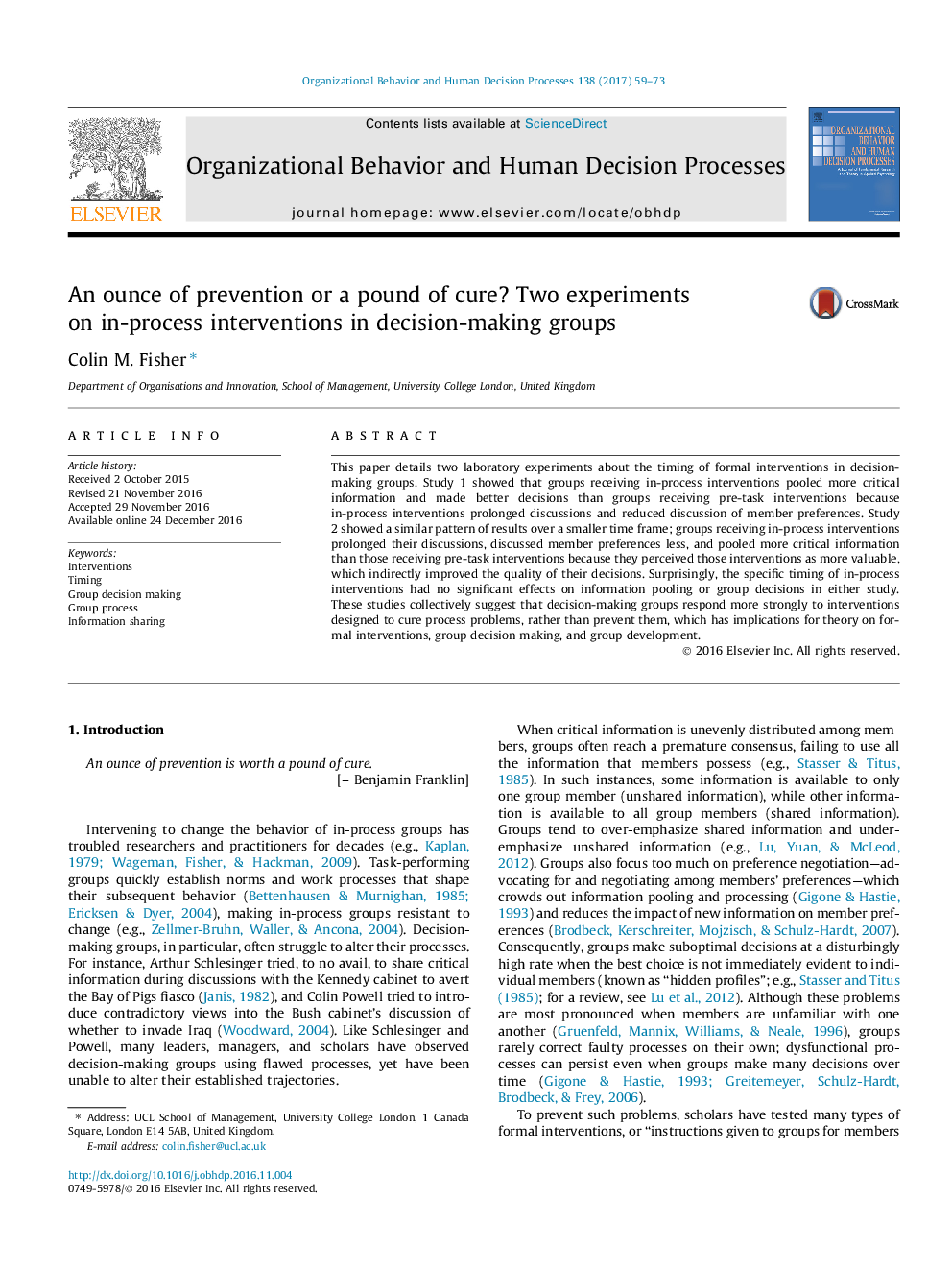| Article ID | Journal | Published Year | Pages | File Type |
|---|---|---|---|---|
| 5035335 | Organizational Behavior and Human Decision Processes | 2017 | 15 Pages |
â¢Two experiments examined intervention timing in decision-making groups.â¢In-process interventions led to better decisions than pre-task interventionsâ¦â¢â¦because they stimulated information pooling, extending discussions and reducing preference negotiation.â¢These effects occurred because groups saw in-process interventions as more valuable.â¢Surprisingly, the specific timing of in-process intervention did not matter.
This paper details two laboratory experiments about the timing of formal interventions in decision-making groups. Study 1 showed that groups receiving in-process interventions pooled more critical information and made better decisions than groups receiving pre-task interventions because in-process interventions prolonged discussions and reduced discussion of member preferences. Study 2 showed a similar pattern of results over a smaller time frame; groups receiving in-process interventions prolonged their discussions, discussed member preferences less, and pooled more critical information than those receiving pre-task interventions because they perceived those interventions as more valuable, which indirectly improved the quality of their decisions. Surprisingly, the specific timing of in-process interventions had no significant effects on information pooling or group decisions in either study. These studies collectively suggest that decision-making groups respond more strongly to interventions designed to cure process problems, rather than prevent them, which has implications for theory on formal interventions, group decision making, and group development.
